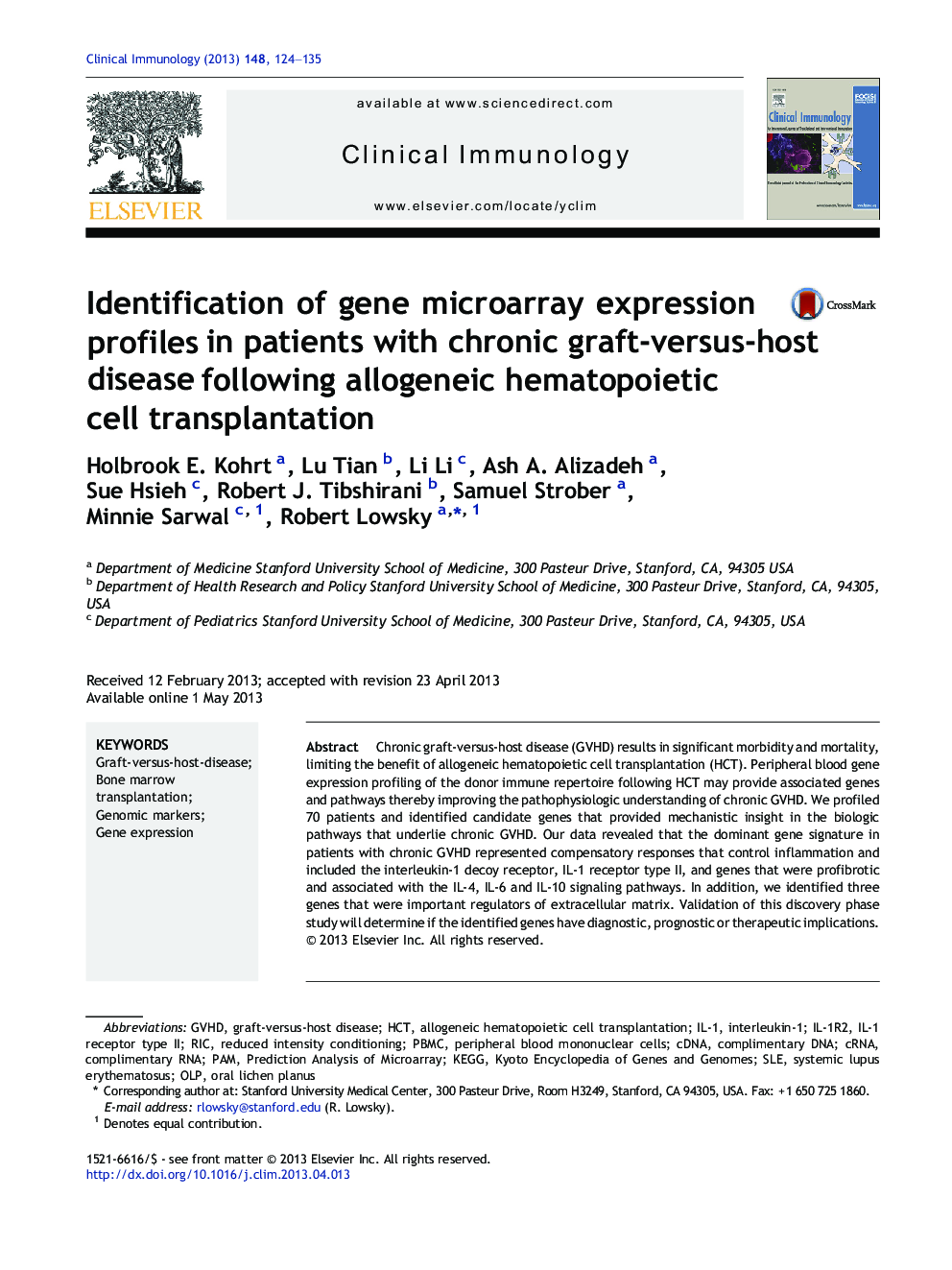| Article ID | Journal | Published Year | Pages | File Type |
|---|---|---|---|---|
| 6087681 | Clinical Immunology | 2013 | 12 Pages |
â¢The major long-term complication of allogeneic HCT is chronic GVHD.â¢Peripheral blood gene expression may improve our understanding of cGVHD.â¢Profiling of 70 post-allogeneic HCT patients identified a dominant cGVHD signature.â¢The signature represented compensatory responses that control inflammation.â¢The findings support gene profiling to advance our understanding of cGVHD.
Chronic graft-versus-host disease (GVHD) results in significant morbidity and mortality, limiting the benefit of allogeneic hematopoietic cell transplantation (HCT). Peripheral blood gene expression profiling of the donor immune repertoire following HCT may provide associated genes and pathways thereby improving the pathophysiologic understanding of chronic GVHD. We profiled 70 patients and identified candidate genes that provided mechanistic insight in the biologic pathways that underlie chronic GVHD. Our data revealed that the dominant gene signature in patients with chronic GVHD represented compensatory responses that control inflammation and included the interleukin-1 decoy receptor, IL-1 receptor type II, and genes that were profibrotic and associated with the IL-4, IL-6 and IL-10 signaling pathways. In addition, we identified three genes that were important regulators of extracellular matrix. Validation of this discovery phase study will determine if the identified genes have diagnostic, prognostic or therapeutic implications.
